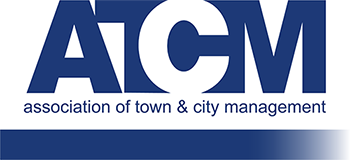
Government Committee: High Streets 2030 Report Published
The inquiry examines the future role of the high street in contributing to the local economy and the health, cohesion and cultural life of the local community and the challenges faced amid changing demographic, technological and other trends in recent decades.
It also looks at how local areas are planning for the future of their high streets and town centres and creating the conditions to sustain them in the years ahead, as well as whether councils have the planning, licensing, tax raising and other tools needed to help local areas flourish.
Terms of Reference
- The role of high streets and town centres in contributing to the local economy and the health, wellbeing, cohesion and cultural life of the local community
- The economic, demographic, social and technological challenges facing high streets and town centres and how they are likely to develop over the next ten years
- How high streets and town centres are adapting to meet these challenges, the conditions necessary for sustainability, for example, residential development and related infrastructure, and how local areas are planning for the future
- The outlook for high streets and town centres that cannot rely on consumer spending and business growth and investment
- Whether councils have the planning, licensing, tax raising and other tools needed to help local areas flourish and how they make use of these
- The legacy of the Government’s previous work on the high street,
including the Portas Pilots, the Future High Streets Forum and the Great
British High Street
ATCM
High Streets 2030 Report has now been published. The committee welcomes the future High Streets Fund and the High Streets Taskforce but says more must be done to support Town Centres. For more information on this report, click here.
The Housing, Communities and Local Government Committee in UK Parliament published its long awaited ‘High streets and town centres in 2030’ report following it’s inquiry which begun last year as indicated in the scope mentioned at the beginning of this article.
The report details the four systemic issues it believes are harming UK high streets:
- Too much retail space
- Fragmented ownership
- Retailers’ high fixed costs: business rates and rent
- Business taxation
Within this, the report indicates something which has concerned ATCM for years, that the burden of business rates is something which goes beyond just retail and impacts other sectors with Cineworld having one of the most negative ratios when it comes to the proportion of business rates paid in relation to turnover.
Future Proofing
The Committee has concluded that ensuring town centres are more orientated around community and activity will support the process of Future Proofing.
The Committee says:
“We are convinced that high streets and town centres will survive, and thrive, in 2030 if they adapt, becoming activity-based community gathering places where retail is a smaller part of a wider range of uses and activities. Green space, leisure, arts and culture and health and social care services must combine with housing to create a space that is the “intersection of human life and activity” based primarily on social interactions rather than financial transactions. Individual areas will need to identify the mix that best suits their specific characteristics, local strengths, culture and heritage. Fundamentally, community must be at the heart of all high streets and town centres in 2030.”
MPs on the Housing, Communities and Local Government Committee join ATCM staff and ATCM Members in Stockton and Darlington for study tours late in 2018
The Future High Streets Fund
The Committee has welcomed the Future High Streets Fund, but has recognised that many towns will miss out on this support with ATCM’s CEO, Ojay McDonald, stressing that better resourced local authorities must be part of a longer-term answer.
The Committee says:
“The Future High Streets Fund is only one part of the solution. Local intervention, while essential, needs to be accompanied by further action by central government and at local level, as well as by retailers and landlords, to create the conditions for high streets and town centres to flourish in the future.”
In partnership with the Institute of Place Management and The BID Foundation, ATCM provided written evidence to the Committee. ATCM also provided oral evidence and supported study tours of the Committee to Stockton and Darlington last year. We want to thank the Committee for the interest in town centres and providing cross-party, public scrutiny over the UK Government’s support for town centres.
‘Death of the High Street?’ on TV
Depending on the news cycle today, Channel 4 will broadcast parts of the ATCM Place Management Conference ‘Death of the High Street?’ as part of their coverage of the publication of this timely report. Keep an eye out for ATCM on national TV.
Treasury Announces Inquiry into Business Rates
The end of this inquiry comes days after the Treasury Committee has announced an inquiry of its own, looking at greater detail at the role of the business rates system in terms of both the impact on businesses and local government finance. ATCM will be monitoring this and working with members and partners to influence the final report in the coming months.
More information on the Treasury Committee inquiry into business rates can be found here.
For more information on High streets and town centres 2030, visit the Website of the Housing, Communities and Local Government Committee
Source: ACTM website
Disclaimer: The information in this page is posted for its interest to Blue Bermondsey BID Members. For further information, please read article in ACTM website
Posted in Business News